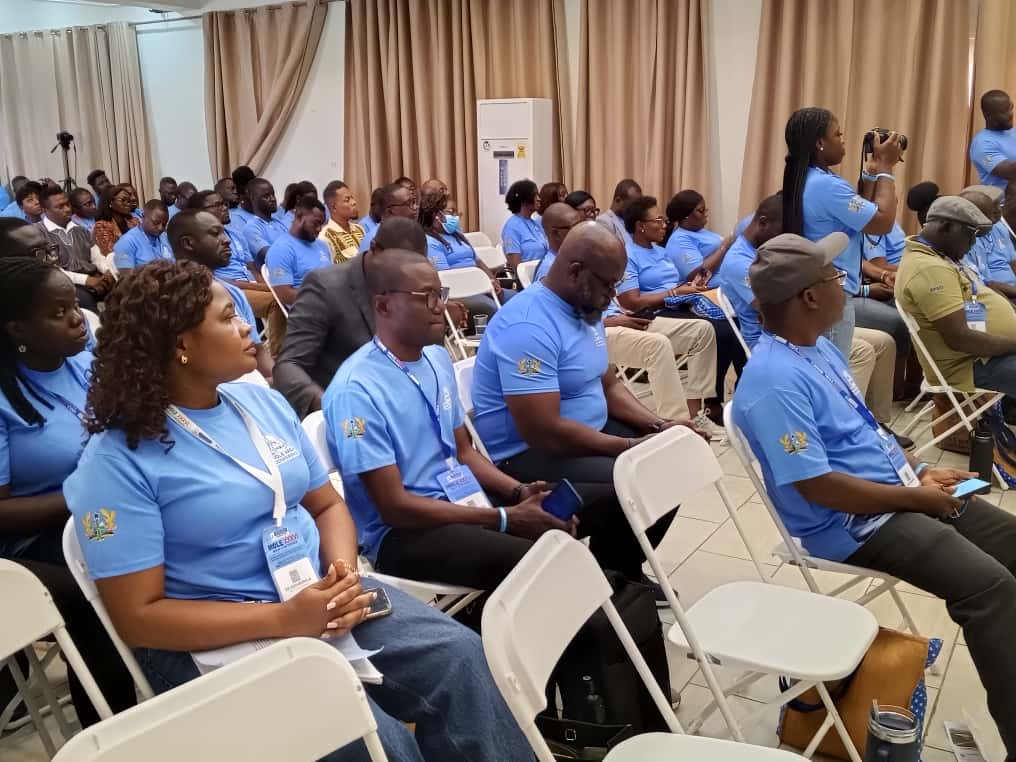
WaterAid Ghana has introduced a pioneering community-led climate financing model aimed at strengthening water, sanitation and hygiene (WASH) services across climate-vulnerable communities in the White Volta Basin. The Climate Resilient WASH Financing Mechanism (CRWFM) was presented at the Mole XXXVI WASH Conference by Ing. Richard Agbo Ntibrey, Programme Manager for WASH and Climate Change at WaterAid, with support from Ibrahim Musa, Head of Partnerships, Planning and Programmes.
The CRWFM is designed as a decentralized funding model that channels flexible resources directly to community structures. These include Village Savings and Loans Associations, Water and Sanitation Management Teams, women and youth groups and persons with disabilities. The approach enables community actors to design and implement their own climate-responsive WASH initiatives, especially in areas where droughts, floods and shifting rainfall patterns continue to threaten water security.
WaterAid explained that the mechanism is grounded in locally led climate action, with communities developing proposals that are then reviewed by a technical committee. Oversight is provided by the Advisory Board of the White Volta Basin Watershed Fund. Proposals must align with key national climate and development frameworks such as Ghana’s National Adaptation Plans, the Integrated Water Resources Management Plans, the Nationally Determined Contributions and Sustainable Development Goal 6. Approved projects receive up to US$3,000 and are implemented within a year.
The governance structure of the fund places emphasis on transparency and community participation. The technical committee includes representatives from district assemblies, private sector institutions operating within the basin, NGOs, WaterAid Ghana and subject-matter experts. Proposal review sessions are held either physically, virtually, or as public hearings to allow communities to follow how decisions are made.
Since the fund’s official launch on September 24, 2025, it has mobilized GHS 400,000 and attracted fifteen proposals from community groups. Two of these have already been approved, with the remaining under review. The first is a canal rehabilitation project in the Dassabligo community in the Nabdam District, where damaged irrigation channels have been repaired to reduce water loss, support dry-season farming and address flood-related contamination risks. The second is a borehole rehabilitation project in Bawku West targeting a faulty handpump, unsafe wellhead, the lack of protective fencing and limited access for persons with disabilities. Together, both projects are improving water safety and climate resilience for more than 1,400 people.
WaterAid noted that the CRWFM is being strengthened through diverse funding streams including district assembly contributions, private sector support, community investments, public donations, external donor grants and returns from a revolving fund that reinvests part of recovered grants.
The organisation announced plans to expand the mechanism by introducing additional funding categories. These include grants to support advocacy networks and campaigns on water justice, and grants dedicated to participatory research, learning and evidence generation to deepen community knowledge on climate resilience.
By 2032, WaterAid aims for the CRWFM to support over two hundred community-driven climate interventions, enhance resilience for more than one hundred thousand people and mobilise at least GHS 4 million in financing. According to the organisation, the model is poised to become a national reference point for sustainable community-led climate adaptation and resilient WASH service delivery across Ghana.
By Samuel Asamoah

